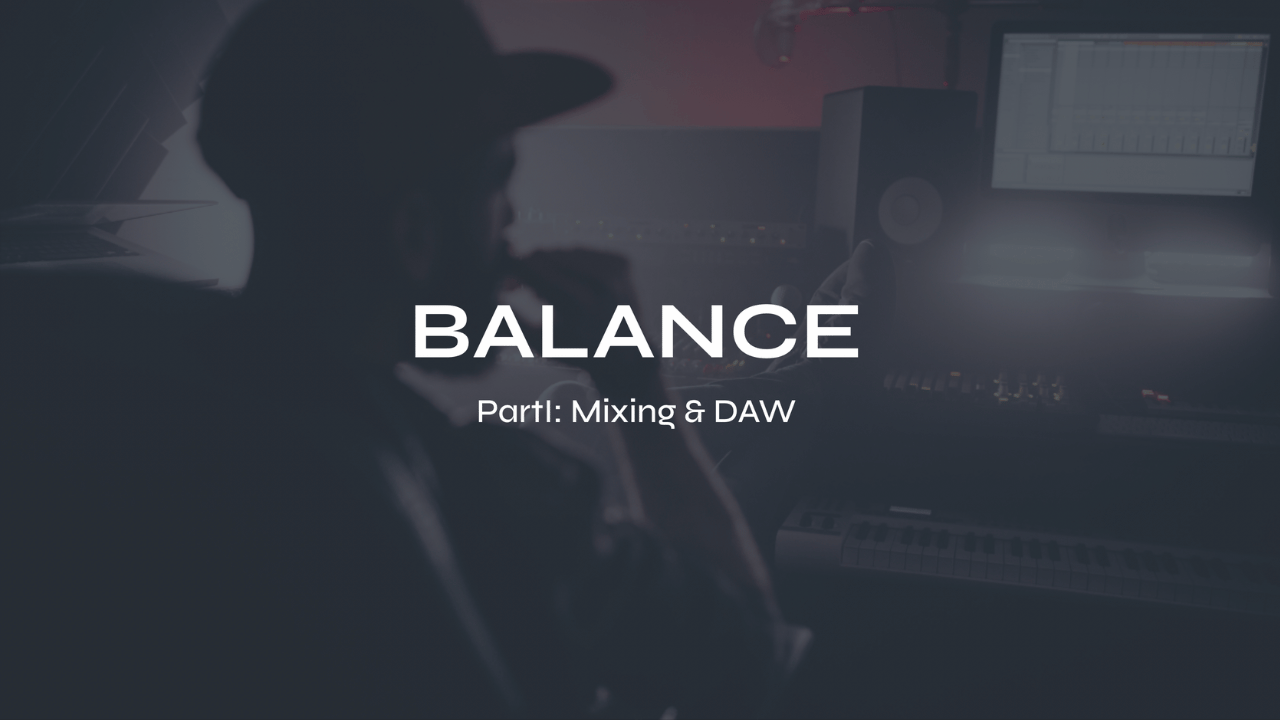What Does a Music Producer Do?

Most people understand what producers do in movies abut have you ever wondered "What do producers do in music?". Music producers are the unsung heroes of the music industry. They are the driving force behind the creation of a record, the ones responsible for shaping the sound of a song or album, and the ones who make sure everything comes together to create a cohesive musical masterpiece. But what exactly does a music producer do?
Well first of all let’s talk about the types of music producers. Before electronic music production and Digital Audio Workstations democratized the process so that anyone with a laptop and software could become a music producer in their bedroom, a traditional music producer had to play many more roles and do more tasks than are required today. Most professional music production today is a hybrid of the traditional approach and the modern laptop approach.
At its most basic level, a traditional music producer is responsible for overseeing the creation of a record, from start to finish. This includes everything from selecting the songs that will be recorded, to working with the artist to create a vision for the sound of the record, to overseeing the recording process, to mixing and mastering the final product. Let’s take a closer look at the main tasks of a music producer.

Download my FREE Music Production Guides
Developing the Song
Developing the song is one of the most critical tasks a music producer has to undertake. It involves working closely with the artist to create a vision for the sound of the record and bringing that vision to life. This process often starts with the selection of the songs to be recorded.
Once the songs have been selected, the music producer will work with the artist to develop the arrangement of the song. This involves deciding on the instrumentation, chord progressions, and melodies that will be used in the song. The producer will also work with the artist to determine the tempo and feel of the song, making sure that it matches the overall tone of the record.
Another key aspect of developing a song is the creation of a demo. The producer will work with the artist to create a rough demo of the song, which will allow them to hear how the song sounds in its early stages. This demo will also serve as a blueprint for the recording process, giving the producer and the artist a clear idea of how the song should sound when it's finished.
Once the demo has been created, the producer will work with the artist to make any necessary changes to the song. This could involve tweaking the arrangement, working on the song structure, adjusting the lyrics, or making changes to the melody. The producer will also work with the artist to ensure that the song is in the right key for the artist's vocal range, making sure that the vocals sound their best.
Throughout the development of the song, the music producer must keep the artist's vision in mind. They must balance their creative input with the artist's desires, making sure that the song stays true to the artist's vision while still sounding great.
In addition to developing the song itself, the music producer must also work with the artist to determine the instrumentation that will be used in the recording process. This could involve selecting the right instruments, finding the right musicians to play them, and even deciding on the microphones and other equipment that will be used to capture the sound.

Download my FREE Home Studio Setup Guide
Developing the Sound
Developing the sound of the recording is another critical task that a music producer has to undertake. It involves working with the artist to create a cohesive sound that fits their style and vision. Producing the sound of a song requires a deep understanding of various musical genres, as well as the technical aspects of music production.
One of the first steps in developing the sound of a recording is selecting the right studio and equipment. The music producer will work with the artist to find a studio with the right equipment and acoustics to achieve the desired sound. They may also select specific microphones, preamps, and other equipment that will be used in the recording process.
Once the recording process begins, the music producer will work with the studio engineers to capture the sound of the instruments and vocals in the best possible way. This involves selecting the right microphone placement, adjusting the levels of each instrument, and applying effects and processing to achieve the desired sound.
The music producer will also work with the artist to create a cohesive sound for the record. This could involve creating a sonic palette of sounds and textures that will be used throughout the record, ensuring that each song fits together to create a cohesive whole. The producer may also experiment with different genres and styles, blending them together to create a unique sound for the record.
Another really important element of the sound of a recorded song is the mixing process. This involves taking all of the individual tracks that were recorded and blending them together to create the final mix. The producer will use their expertise to balance the levels of the various instruments and vocals, and to apply effects and other processing to achieve the desired sound.
Once the mix is complete, the producer will move on to the mastering phase. This involves preparing the final mix for distribution, making sure that it sounds as good as possible on all playback devices. The music producer will work with a mastering engineer to ensure that the final product meets the technical specifications for distribution.

Take my my FREE Ableton Live course
Project Management
In addition to developing the song and the sound of the recording, music producers are also responsible for the project management. This involves managing studio time, coordinating with other team members, and ensuring that the project stays on schedule.
Managing studio time is a critical aspect of project management for a music producer. They must ensure that the studio is booked for the necessary amount of time to record, mix, and master the record. They must also manage the time of the musicians and other team members involved in the recording process, making sure that everyone is available when needed.
Coordination with other team members is also crucial for a music producer. They must work closely with the artist, engineers, musicians, and other team members to ensure that everyone is on the same page and working towards the same goal. They may also be responsible for hiring session musicians, arranging for backup singers, and coordinating with outside vendors such as mastering engineers or graphic designers for the album artwork.
Ensuring that the project stays on schedule is another key responsibility for a music producer. They must set realistic deadlines for each stage of the recording process and ensure that everyone involved in the project is aware of these deadlines. They must also be able to adjust the schedule as needed to accommodate unforeseen circumstances, such as delays in recording or changes to the project scope.
Effective communication is essential for successful project management. The music producer must keep the artist informed of the project's progress, providing updates on the recording process, mix, and mastering stages. They must also be able to communicate any issues or challenges that arise and work with the artist to find solutions to these problems.

In conclusion, a music producer plays a vital role in the creation of a record. They are responsible for overseeing the entire process, from selecting the songs to be recorded to ensuring that the final product is of the highest possible quality. A music producer must have a deep understanding of the technical aspects of music production, as well as the ability to work collaboratively with a wide range of people. Without the expertise and guidance of a music producer, many of the greatest records of all time would never have been made.
Futch - Music Production Coach and Ableton Certified Trainer
Here it is, my live online mixing course: BALANCE Part I:Mixing & DAW
BALANCE Part I: Mixing & DAW live online course
What you’ll get:
9 live online Zoom classes (each class is about 2.5 hours long)
scheduled to match the date & time availability of each cohort
9 on-demand video recordings of each module for review. You will always have access to these videos for reference.
9 module PDF reference guides.
9 assignments to practice what you’ve learned after each module
Quizzes and self-assessments after each module to test your understanding of the concepts.
A growing community of members to exchange feedback, ask questions and collaborate with.
Educational discounts on select plugins and hardware from LEVELS partners for successful (80%) quiz results
100% Money-Back Guarantee - just contact support and let me know before class 5 starts. You will then lose access to everything.






